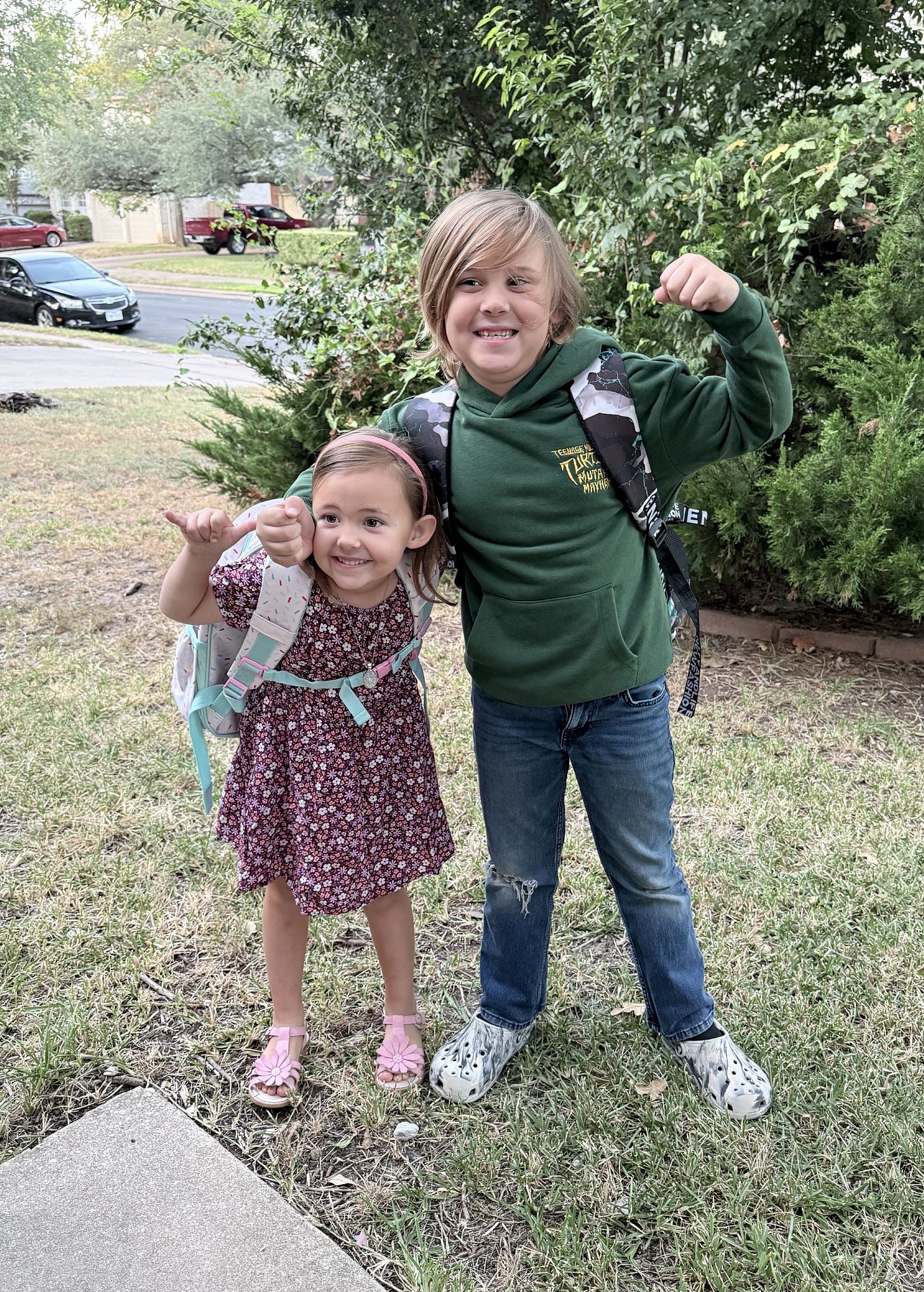Black Belts
I’m coming up on a year of posting consistently. I’ll write a longer piece on what I’ve learned from that around the anniversary next month, but as I sit here now, one thing stands out: the best time to write is either very early in the morning or very late at night. When the house is quiet and everyone’s asleep, thoughts land differently.
Big week around here. First full week of school for the kids. Here they are on day one:

Sage started baseball season and piano again. My daughter Brynn has started gymnastics. Jackie is two weeks away from launching classes in the new Art House. You can follow her business here: Saplings Studio and read about her journey here: Overnight Success.
A few friends got promoted in jiu-jitsu at the gym. It’s always great to see people you’ve trained with for years level up. Rodrigo, our head instructor, said something during a black belt promotion that stuck with me: most black belts can smash anyone on the mat, but a true black belt helps everyone they train with to improve. They see the holes in other people’s games and work with them to fix them.
That’s true everywhere. At work, it’s tempting to keep doing things yourself because you’ll do it faster or cleaner. But real leadership is letting go, digging into what others are producing, and giving feedback that makes them better. Praise in public, coach in private. Let people make mistakes they can grow from. I want to be that kind of black belt: in parenting, marriage, teaching, work, and eventually on the mats too.
Another milestone this week: I had an offer accepted for a new hire on my Apple team. Exciting to bring in fresh energy and skills, and frankly, someone I’ll learn from too. Hiring has a hard side too. Someone I respect didn’t get the job, and telling him was brutal. No amount of “you were close” softens that blow. I had to own the decision. It sucked. Hopefully, I’ll get the chance to work with him again down the line.
And next week, I’m back in the classroom with a fresh title. I am no longer a Lecturer; I’m now an Assistant Professor of Instruction. Also, there are about 70 fresh names and faces to remember. This is my sixth semester teaching, and oddly, I get more nervous now than when I started. Maybe it’s because the beginner’s confidence fades and imposter syndrome creeps in.
Imposter syndrome doesn’t get talked about much because people are afraid to admit it. But it hits high achievers the hardest. You climb the ladder, then suddenly wonder if someone made a mistake in trusting you with responsibility. I feel it every time I stand in front of students, because in my head, I’m still a student daily.
The truth is: imposter syndrome usually means you’re growing. The more you learn, the more you realize you don’t know. It’s the opposite of the Dunning-Kruger effect, where people with a little knowledge think they’re experts. The deeper you go, the more humbling it gets.
That humility drives growth. A PhD might feel like they know less than a beginner because they’ve seen just how infinite knowledge really is.
So if you’re wrestling with imposter syndrome, take it as a good sign. It means you’re stretching, trying things that matter. Don’t waste energy fighting it. Use it. Get a little better each day. That progress adds up.
And when you finally become who you thought you were chasing, you’ll just set new goals anyway. That’s the point. Life isn’t the result. It’s the pursuit. Hopefully for something great.
Imposter syndrome isn’t weakness. It’s proof you’re exactly where you should be.
Don’t get captured,



